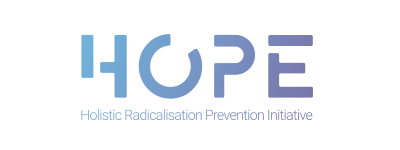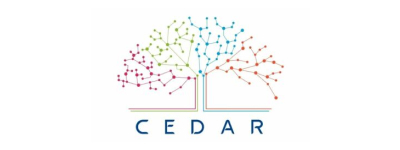With the steady, ongoing, and swift advance of technological development and its aggregation into society and all spheres of human coexistence, we are faced with an increasingly digital reality. This results in technologies finding greater application in various domains, thus becoming a central core of society’s daily lifestyle (Dolgopolov, Ivanov, Lauta, & Yacobi, 2022), and the increasing importance of being prepared to use them (i.e., digital skills).
One such sphere at the heart of human and social coexistence is criminal justice, which has been no stranger to digitalisation processes, and to the need to foster greater digital skills among stakeholders in the sector. Hence, growing efforts have been made towards promoting symbiosis between digital technology and criminal justice systems (Dolgopolov, Ivanov, Lauta, & Yacobi, 2022; Donoghue, 2017).
Academic and scientific community’s interdisciplinary studies (Stratton, Powell, & Cameron, 2017; Dolgopolov, Ivanov, Lauta, & Yacobi, 2022) and the challenges brought by the COVID-19 pandemic (European Commission, 2020a; Carrera, Mitsilegas, & Stefan, 2021), have underlined the transformative impact of digital technologies and communications in promoting the development of justice systems. On the other hand, they also brought to light the challenges and shortcomings stemming from a lack of digital literacy in the sector.
Within the European context, the digitalisation of criminal justice has acquired a great academic and political-institutional focus. Cooperative relationships have been created between European institutions seeking to promote and advance the European Union’s focus on the digital transformation of justice systems. To this end, over the years, several strategies have been created to promote the development and implementation of innovative technologies in national justice systems. These were complemented by implementing nationally adapted strategies (Carrera, Mitsilegas, & Stefan, 2021; European Commission, 2020b), as well as training relevant stakeholders in the justice sector to utilise such technologies within their scope.
Nevertheless, there is still a lack of state-of-the-art technologies for effective cooperation among criminal justice systems, as well as a lack of digital skills, further accentuated by COVID-19’s consequences (European Commission, 2020a). Although some initiatives primarily address security and law enforcement concerns, it is essential to recognise the broader opportunities offered by the digitalisation of the sector (Carrera, Mitsilegas, & Stefan, 2021).
Taking advantage of the digitalisation of criminal justice through digital skills
Considering the ever-evolving security threat landscape and the rapid pace of technological advancements, the digitalisation of criminal justice systems is essential for its modernisation and optimisation. Such has particular relevance in promoting and strengthening cooperation between relevant stakeholders in the sector, as well as within the scope of data sharing and management (European Commission, 2020a). Equally important as this digitalisation, however, is the qualification and training of the relevant actors in the criminal justice system as the main users of these digital tools.
While these technologies are not intended to displace the work and the human role in criminal justice (Dolgopolov, Ivanov, Lauta, & Yacobi, 2022), the fact is that their operational benefits and efficiencies are unquestionable (European Commission, 2020b), thus stressing the importance of know-how and digital competences to ensure their optimum use. These technological advances, processes of digitalisation, and digital skills promotion intend to make criminal justice pathways more efficient (Dolgopolov, Ivanov, Lauta, & Yacobi, 2022), opening up wider spaces for dialogue and cooperation between different stakeholders (Stratton, Powell, & Cameron, 2017).
The transformative effect of the digital communication sphere has sparked discussions on how new forms of technology can enhance and improve the sector (Donoghue, 2017). One of the great strengths of using digital technologies is the ability to ensure efficient threads of communication that facilitate the cooperation of different stakeholders in the criminal justice system (European Commission, 2020a). This subsequently guarantees interoperability between different national and EU actors, contributing to the improvement of their effectiveness within the national systems (Carrera, Mitsilegas, & Stefan, 2021; European Commission, 2020a).
In light of this reality, and to move forward with the potential of digitalising criminal justice systems, the EU has stressed the importance of strengthening partnerships and creating networks within the justice sector to promote the use of these digital tools, projects, partners, and funding opportunities. On the other hand, it has also been recommended to enhance the involvement of justice experts in raising awareness initiatives on the benefits of innovative technologies and their specific challenges (European Commission, 2020b).
This, among other actions, further demonstrates Europe’s commitment to establishing an ecosystem of excellence that fosters the development and adoption of technologies and digital tools in criminal justice (European Commission, 2020b), and the need for improving digital skills to grasp this potential. As such, numerous initiatives have been undertaken by both European and national entities to transition towards ensuring reliable, secure, and trustworthy digital products (European Commission, 2020b).
The HOPE Project: A reflection of criminal justice digitalisation’s potential
In this sense, the HOPE project serves as a good demonstration of the positive potential that the use of digital tools and skills holds within the criminal justice sector. By embracing a digital and online interface as one of its cornerstones, the project showcases how the integration of digital technologies can enhance various aspects of the criminal justice system.
Aligned with Europe’s vision of modernising systems and achieving climate goals through the digital transition, the HOPE project recognises the transformative power of digitalisation. Through its emphasis on digital tools and readiness, the project signifies a forward-thinking approach that harnesses technology to drive progress and innovation in the field of criminal justice.
By utilising an e-Learning system within the Corrections Learning Academy, the project extends opportunities for training and capacity-building to professionals across different locations and time zones. This inclusive approach not only overcomes traditional barriers related to organisational policies and logistical challenges but also empowers participants to learn and develop their skills at their own pace. The digital platform enables seamless access to relevant resources, facilitates knowledge exchange, and fosters a collaborative learning environment that transcends physical boundaries.
The project’s commitment to utilising digital platforms for transnational events and communications further underscores the positive impact of digitalisation in the criminal justice sector. By facilitating wider participation and enabling cost-effective engagement, digital tools empower stakeholders to contribute actively to the project’s objectives. This inclusive and collaborative approach ensures that diverse perspectives and expertise are leveraged to drive meaningful change and innovation.
Furthermore, the incorporation of digital learning methods, such as e-Learning modules and virtual training sessions, highlights the project’s dedication to enhancing partners digital proficiency and knowledge. By providing remote access to learning opportunities, the project empowers individuals to acquire new skills and stay updated on the latest developments in the field of criminal justice. This focus on continuous learning and digital skills development reflects the project’s commitment to nurturing a digitally competent workforce that can effectively address the evolving challenges of the criminal justice landscape, whilst taking advantage of the digital tools available to achieve such aims (i.e., through the creation of an online network, online events and workshops, and the use of e-Learning tools).
In summary, the HOPE project serves as an example of how the strategic integration of digital tools, along with the necessary development and fostering of digital skills, can unlock the potential within the criminal justice sector. By embracing digitalisation, the project enhances training opportunities, streamlines project management, fosters collaboration, and empowers stakeholders to work together towards achieving positive and transformative outcomes.
References
Carrera, S., Mitsilegas, V., Stefan, M., (2021). Criminal Justice, Fundamental Rights and the Rule of law in the Digital Age – Report of CEPS and QMUL Task Force. Center for European Policy Studies. Belgium. https://www.ceps.eu/ceps-publications/criminal-justice-fundamental-rights-and-the-rule-of-law-in-the-digital-age/
Dolgopolov, K., Ivanov, S., Lauta, O. & Yacobi, I. (2022). The Digital Era Of Criminal Justice And Its Features Due To The Current Development Of Computer Technology And Artificial Intelligence. Revista Jurídica, 3(70), 826-837. https://revista.unicuritiba.edu.br/index.php/RevJur/article/view/5704
Donoghue, J. (2017). The Rise of Digital Justice: Courtroom Technology, Public Participation and Access to Justice. The Modern Law Review, 80(6), 995-1025. https://doi.org/10.1111/1468-2230.12300
aEuropean Commission, Directorate-General for Justice and Consumers. (2020). Cross-border digital criminal justice – Final report. Publications Office: Brussels. https://data.europa.eu/doi/10.2838/118529
bEuropean Commission, Directorate-General for Justice and Consumers. (2020). Study on the use of innovative technologies in the justice field – Final report. Publications Office: Brussels. https://data.europa.eu/doi/10.2838/585101
Stratton G., Powell A. & Cameron R. (2017). Crime and Justice in Digital Society: Towards a ‘Digital Criminology’? International Journal for Crime, Justice, and Social Democracy, 6(2), 17‐33. https://doi.org/10.5204/ijcjsd.v6i2.355
Know more about this project

HOPE
Holistic Radicalisation Prevention Initiative (Balkan countries)
HOPE is led by IPS_Innovative Prison Systems (Portugal) in partnership with organisations from several countries, namely the University College of Norwegian Correctional Service (Norway), Agenfor International Foundation (Italy), the Euro-Arab Foundation for Higher Studies (Spain), the Bulgarian Association for Policy Evaluation (Bulgaria), the Bulgarian General Directorate “Execution of Sentences” (Bulgaria), the Bucharest-Jilava Penitentiary (Romania), the Helsinki Committee for Human Rights in Serbia (Serbia) and the Slovenian Probation Administration (Slovenia).
For more information about the HOPE project and the HOPE Radicalisation Prevention Network, go to www.hope-radproject.org
Related projects

CEDAR
Continuing Education Against Radicalisation

EUTEx
Developing a European framework for disengagement and reintegration of extremist offenders and radicalised individuals in prison

IN2PREV
Law enforcement and community cooperation and training approach to prevent radicalisation by ensuring refugees’ successful inclusion

INDEED
Strengthening a comprehensive approach to preventing and counteracting radicalisation based on a universal evidence-based model for evaluation of radicalisation prevention and mitigation

INTEGRA
Integrated Community, Probation and Prison Services Radicalisation Prevention Approach

MIRAD
Multi-Ideological Radicalisation Assessment towards Disengagement

PARTES
Participatory Approaches to Protecting Places of Worship

PRACTICIES
Partnership against Radicalisation in Cities

R2COM
Radicalisation and violent extremism prevention in the community

R2PRIS
Radicalisation Prevention in Prisons
Related news

Empowering communities to support integration: a first step in preventing radicalisation
Read More »
“EU Knowledge Hub on Prevention of Radicalisation”: European Commission Launches a €60 Million Initiative for the next 4 years
Read More »
International conference unveils comprehensive strategies to tackle radicalisation in the criminal justice system and beyond
Read More »




